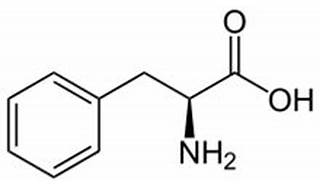A nurse is providing anticipatory guidance to a client who has phenylketonuria (PKU) and is planning a pregnancy. Which of the following pieces of information should the nurse include in the discussion?
"Serum bilirubin should be monitored one to two times per month during pregnancy."
"Diet sodas should not be consumed more than two or three times per week."
"Breastfeeding will prevent your baby from developing PKU."
"A low-protein diet should be followed for 3 months prior to conception."
The Correct Answer is D

The correct answer is choice d. “A low-protein diet should be followed for 3 months prior to conception.”
Choice A rationale:
Monitoring serum bilirubin is not relevant for managing phenylketonuria (PKU) during pregnancy. PKU management focuses on maintaining low phenylalanine levels to prevent harm to the developing fetus.
Choice B rationale:
Diet sodas contain aspartame, which is high in phenylalanine and should be completely avoided by individuals with PKU, not just limited to two or three times per week.
Choice C rationale:
Breastfeeding does not prevent a baby from developing PKU. PKU is a genetic disorder, and breastfeeding does not influence the genetic makeup of the baby.
Choice D rationale:
Following a low-protein diet for 3 months prior to conception is crucial for women with PKU. This helps to ensure that phenylalanine levels are low, reducing the risk of birth defects and intellectual disabilities in the baby.
Nursing Test Bank
Naxlex Comprehensive Predictor Exams
Related Questions
Correct Answer is B
Explanation
Choice A rationale:
Verapamil is a calcium channel blocker commonly used to treat high blood pressure and angina. It doesn't significantly impact wound healing or increase the risk of wound dehiscence.
Choice B rationale:
Prednisone is a corticosteroid that suppresses the immune system and has anti-inflammatory effects. While it can be crucial for managing postoperative inflammation, its immunosuppressive nature can hinder the normal wound-healing process, increasing the risk of wound dehiscence.
Choice C rationale:
Omeprazole is a proton pump inhibitor that reduces stomach acid production. While it can influence the gastric environment, it doesn't directly impact wound healing or the risk of wound dehiscence.
Choice D rationale:
Zolmitriptan is a medication used to treat migraines. It doesn't interfere with wound healing or increase the risk of wound dehiscence.
Correct Answer is D
Explanation
Choice A rationale:
Canned potato soup is not a suitable choice for a heart-healthy diet. Canned soups often contain high levels of sodium, which can contribute to hypertension and worsen coronary artery disease.
Choice Brationale:
Baked ham is another poor choice for a heart-healthy diet. Processed meats like ham tend to be high in sodium, saturated fats, and preservatives, which can negatively impact cardiovascular health.
Choice Crationale:
Processed cheese is also not recommended for a heart-healthy diet. Processed cheese can be high in saturated fats and sodium, both of which are detrimental to cardiovascular health.
Choice D rationale:
The correct choice is broiled salmon. Salmon is rich in omega-3 fatty acids, which have been shown to have protective effects on the heart. Omega-3 fatty acids can help lower triglyceride levels, reduce inflammation, and improve overall cardiovascular health. Broiling the salmon is a heart-healthy cooking method that preserves its nutritional value without adding excessive unhealthy fats.
Whether you are a student looking to ace your exams or a practicing nurse seeking to enhance your expertise , our nursing education contents will empower you with the confidence and competence to make a difference in the lives of patients and become a respected leader in the healthcare field.
Visit Naxlex, invest in your future and unlock endless possibilities with our unparalleled nursing education contents today
Report Wrong Answer on the Current Question
Do you disagree with the answer? If yes, what is your expected answer? Explain.
Kindly be descriptive with the issue you are facing.
